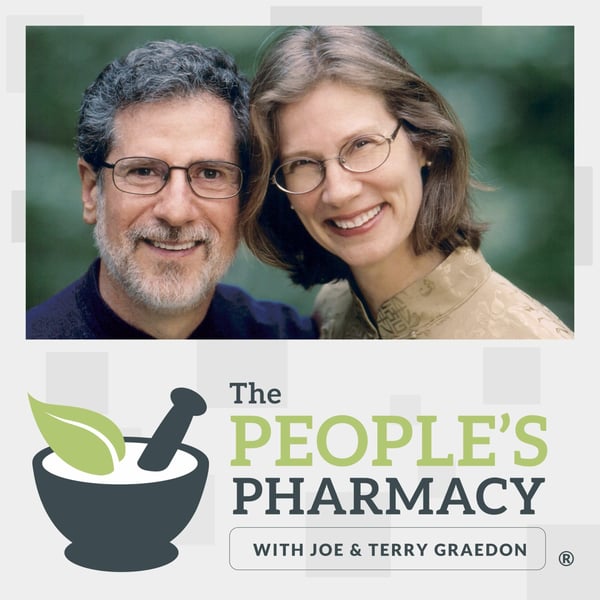Show 1400: Exposing Blind Spots: Unmasking the Myths of Modern Medicine
The People's Pharmacy
Joe and Terry Graedon
4.5 • 934 Ratings
🗓️ 19 September 2024
⏱️ 72 minutes
🧾️ Download transcript
Summary
Transcript
Click on a timestamp to play from that location
| 0:00.0 | I'm Joe Gradyton and I'm Terry Grady. Welcome to this podcast of the People's Pharmacy. |
| 0:06.1 | You can find previous podcasts and more information on a range of health topics at people's pharmacy.com. |
| 0:15.0 | Medicine has made great advances, but it also has some blind spots. |
| 0:20.0 | Dogma may persist despite new evidence. |
| 0:23.3 | This is the People's Pharmacy with Terry and Joe Grady. Dr. Marty McCary is a renowned surgeon at Johns Hopkins University. |
| 0:39.0 | He's also a medical muckraker. |
| 0:42.0 | His new book is titled Blind Spots, |
| 0:44.8 | When Medicine Gets It Wrong and What It Means for Our Health. |
| 0:50.1 | When we issue recommendations in medicine based on good scientific evidence, |
| 0:55.2 | we shine as a profession, we help a lot of people. But when we make recommendations |
| 1:00.7 | based on dogma and a gut feeling we have a lousy track record. |
| 1:05.4 | Coming up on the People's Pharmacy Unmasking the myths of Modern Medicine. medicine. |
| 1:14.0 | In the People's Pharmacy Health Headlines, |
| 1:17.0 | Microscopic particles of plastic have been found in many parts of the human body. |
| 1:22.0 | Now scientists announce that they found microplastics in brains. |
| 1:27.0 | Specifically, investigators report that autopsies of 15 individuals revealed microplastic shards in the olfactory bulbs of eight of them. |
| 1:38.0 | This location suggests that tiny bits of plastic could get into the brain if they're in the air we breathe. |
| 1:45.3 | The autopsies identified 16 different plastic particles or fibers. |
| 1:50.2 | The researchers note that nanoplastics, particles that are even smaller and harder to detect, |
| 1:56.3 | might be present in greater numbers. Neuroscientists don't know yet whether the accumulation of |
| 2:02.0 | plastic in the brain could affect cognitive function, but they worry about the potential for the chemicals in plastic to disrupt brain health. |
| 2:11.0 | Another way plastic compounds get into our body is through food packaging. |
... |
Please login to see the full transcript.
Disclaimer: The podcast and artwork embedded on this page are from Joe and Terry Graedon, and are the property of its owner and not affiliated with or endorsed by Tapesearch.
Generated transcripts are the property of Joe and Terry Graedon and are distributed freely under the Fair Use doctrine. Transcripts generated by Tapesearch are not guaranteed to be accurate.
Copyright © Tapesearch 2025.

